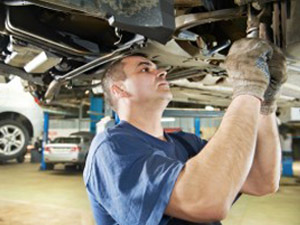Car Brakes Warning Signs
The Top 7 Signs Your Brakes Need Immediate Attention
All drivers want to keep their auto repair costs down. But sometimes, the best way to do that is to actually budget a bit more for auto maintenance costs; by putting more attention into preventing problems or catching them early, you can drastically cut down on your overall auto repair costs. Plus, of course, you won’t have to worry as much about the high auto repair costs associated with car accidents; mechanical failure factors into between 12 and 13% of auto accidents, with the bill from accidents resulting from unperformed maintenance topping $2 billion each and every year.
One of the most important aspects of your car that deserves regular attention is your braking system. Properly cared for, this system doesn’t ask for much — just new brake pads and brake fluid every so often. But it’s very important that you know the most common signs of brake trouble so you can correct problems before they get out of hand or end in total brake failure. Here are seven all drivers should be aware of (based on info from the Car Care Council):
- Noises: Screeching or grinding noises when you apply pressure to the brakes probably indicate that you need new brake pads — and may have already damaged your brake rotors by waiting too long.
- Pulling: If your car pulls to one side or the other when you brake, that could indicate uneven wear or poor alignment.
- Low Pedal: You shouldn’t have to press the pedal all the way to the ground before it engages.
- Hard Pedal: You shouldn’t have to use a lot of pressure on the brake pedal before it engages.
- Vibration: The brake pedal shouldn’t vibrate any more than the rest of the car when you’re braking under normal conditions.
- Grabbing: Sensitive brakes that grab as soon as you touch the pedal need to be adjusted, as this makes it more likely you’ll get in an accident.
- Lights: If there’s a dashboard warning light on, it’s time for an inspection. A full 10% of drivers have a check engine light on at any given time — and about 50% of those will ignore it for longer than three months. Don’t be among them.
